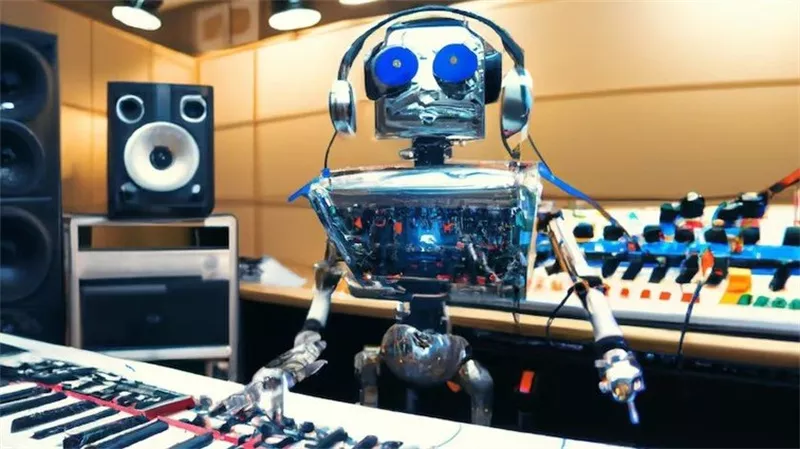The AI Symphony: Music has always been a medium for human expression, a symphony of emotions woven through melodies and rhythms.
But in recent years, a new melody has joined the music industry – Artificial Intelligence (AI). From songwriting algorithms to virtual vocalists, AI is rapidly transforming the music industry, and its influence is only set to amplify.

Courtesy: Rele Asia
Composing with Code:
AI isn’t just humming along in the background; it’s actively composing. Algorithms trained on vast datasets of musical styles can generate original melodies, harmonies, and even lyrics, mimicking the styles of iconic artists or forging new sonic landscapes. This opens up a world of possibilities for both established musicians and aspiring creators, offering tools to spark inspiration, overcome writer’s block, or experiment with uncharted sonic territories.

Courtesy: Analytics Vidhya
From Studio to Stage: AI isn’t just a composer; it’s a performer too. Virtual singers powered by AI can mimic human voices with uncanny realism, delivering vocal performances that blur the lines between human and machine. This technology is already being used to revive the voices of deceased artists, create interactive music experiences, and even develop entirely new musical personas.
The Algorithmic Ear: AI isn’t just creating music; it’s listening and learning. Streaming services use AI algorithms to personalize music recommendations, tailoring playlists to individual preferences with eerie accuracy. This hyper-curated approach can lead to exciting music discovery, introducing listeners to hidden gems they might have otherwise missed. But it also raises concerns about echo chambers and the potential for AI to dictate musical tastes rather than reflect them.
Beyond the Notes: The impact of AI extends far beyond the creation and consumption of music. AI-powered tools can analyze listener data, optimize artist marketing campaigns, and even predict musical trends. This data-driven approach can empower artists to make informed decisions about their careers and connect with their audience in more meaningful ways.

Courtesy: ABC
However, the rise of AI in music also presents challenges. Concerns about job displacement for musicians and producers are valid, as AI automates certain tasks previously done by humans. Additionally, the potential for AI-generated music to saturate the market and homogenize musical styles raises questions about the future of artistic originality.
Ultimately, the future of music with AI is not a predetermined score. It’s a collaborative melody, where human creativity and AI’s power to analyze, generate, and personalize can coexist and create something truly remarkable. The key lies in harnessing the potential of AI responsibly, ensuring it augments human creativity rather than replaces it. As we navigate this evolving musical landscape, we can embrace AI as a tool to expand the possibilities of music, while ensuring that the heart and soul of music – human expression – remains at the center of the symphony.
Read more such articles – here
